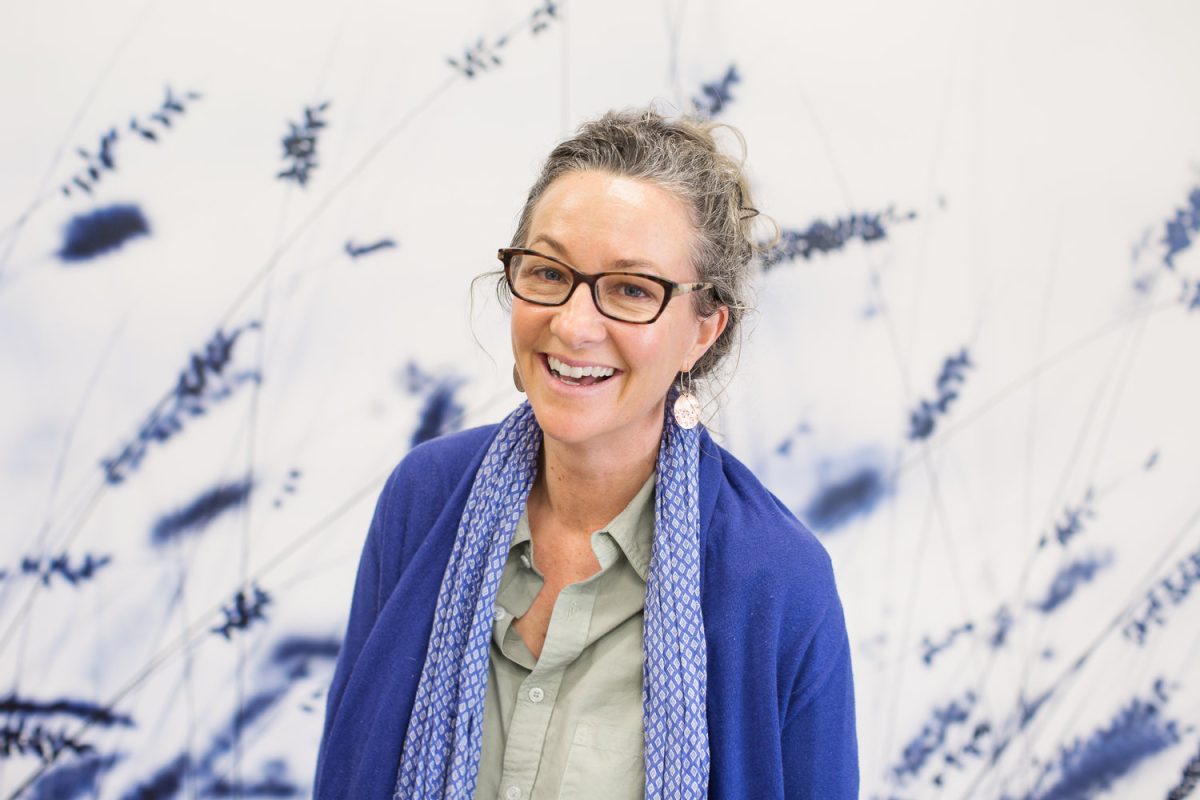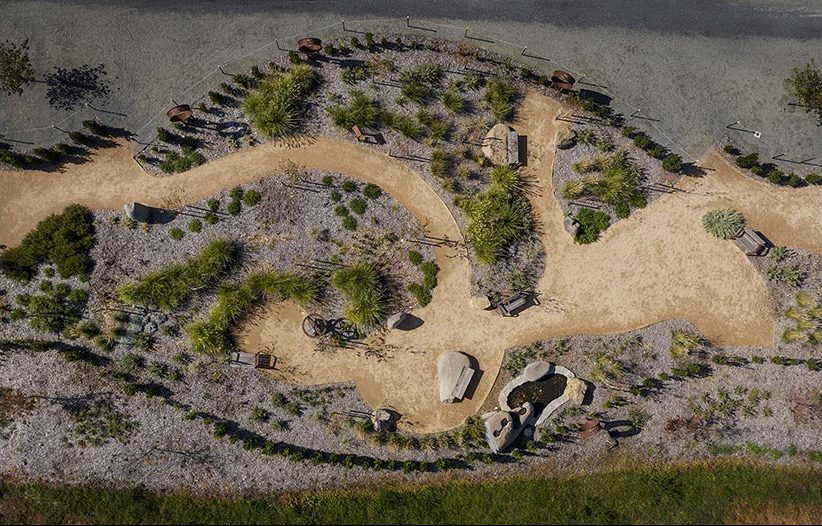
Young-based landscape architect Alex Dalglish. Photo: Somewhere Landscape Architects.
It’s in the subtle forms and details that the Gift of Life Garden at the National Arboretum in Canberra honours organ and tissue donors, but at the heart of its design was an unexpected conversation that inextricably linked its creators.
Landscape architect Alex Dalglish, of the Hilltops town of Young, says the journey to designing this meaningful space, opened to the public six years ago, was surprisingly emotional.
After first being approached for the project, she and her Somewhere Landscapes team, admittedly a little overwhelmed, according to Alex, gathered to ponder the brief, breaching a big idea of a garden commemorating the importance of organ and tissue donation and transplantation in all its intricacies.
Notable for projects private and public, in spaces and cities across the eastern seaboard, the magnitude of endeavour lay not in the dimensions but in the significance of place and narrative.
“It’s such an important subject and an important garden so I felt very, very honoured to have this project,” Alex said. “And first I was sort of coming from the point of view, oh gift of life, well of course, all gardens are a gift of life, what a lovely way to think about it.”
But that initial meeting revealed a deep, rich seam of narratives.
“We started with that point of wonder, talking about the idea of organ transplant, and what we realised is that we all had really interesting and deeply personal stories to share, but we’d never talked about it because it’s kind of one of those things that you don’t talk about,” Alex said.
The conversation shed light on a friend who’d received a new heart, and new life, at 50, two young men tragically killed who were donors and a sister who works as an organ transplant nurse at St Vincent’s Hospital in Sydney.
“Hearing each other’s experiences was really moving; it was very emotional and amazing at the same time, but it also gave us a strong insight into what donation means for recipients and donors,” Alex said.
This surprising and unspoken intimate connection to the subject matter would ultimately shape the garden’s concept of conveying organ donation’s altruistic spirit – the ultimate gift of someone giving that gift of life and also the idea of receiving – through outward-facing views, or portals, to vantage points in the surrounding landscape.
“All of those elements, in terms of what they have in common, is that they’re looking outside of yourself,” Alex said. “So we started with this really simple idea that the garden should be outward-looking but you still have this sense of inner reflection.”
Now, still, years after being unveiled, the Gift of Life Garden has matured and taken new shape, and people still regularly approach Alex seeking to understand the site’s deeper meaning, how it came about.
In planning the “formal garden”, Alex had something far more organic in mind.
“So at ground level we might have trees in the middle of paths, or offset so it looked nothing really lined up or made sense, but what underpins this whole design is that the trees actually sit on a grid,” she said.

An aerial view of the Gift of Life Garden at the National Arboretum Canberra soon after it was unveiled. Photo: National Arboretum Canberra.
Standing in and looking out of the garden today, few would know that beneath the eye-shaped layout lies a carefully planned underlying structure resembling the many factors that must precisely align for a successful transplant.
Winding paths of decomposed granite, granite rock, timber segments, corten steel rings, cascading water, underground pulsating light and a mixed perennial-based planting colour scheme reflect the concept of a beating heart and cycle of life within seasons.
Soft, muted tones are offset by a grid of white-trunked birch trees that augment and give structure to the garden and create a recurring indefatigable ceiling to the space.
“I don’t think you’ll be fully aware of that till the trees really grow. Because the idea with the trees is that the canopies will mesh and you’ll be left with white trunks that you’ll walk through,” Alex said.
A space for quiet reflection and appreciation not just of the wonderful gift of donors and their families, the renewed life of transplant recipients, and the work of the medical and health professionals, the garden has also been designed with the hope of inspiring new donors to give the gift of life.
Haiku engraved in rocks carries those messages of hope, from Alex, that wonders unfold and life will go on.
“My first boss used to make me write haiku to explain what I was designing and if I couldn’t write a haiku piece about it, I didn’t know what I was doing,” she explained. “So I did start this process with that and that really helped me home in on what the garden was.”
Details such as heart-shaped stones honour the families who first influenced the design.
“It feels like a way to memorialise loved ones lost and raise awareness of this incredible gift,” Alex said.
While other commissions have brought her and her team prestige, this one holds the most personal significance.
But actually, she says, the garden’s creation and ongoing impact in inspiring reflection on life’s fragility and human generosity, in engendering conversations, have also been deeply rewarding, making it as much a gift to its creator as it is to those it honours.
This year, national DonateLife Week will take place from Sunday, 28 July, to Sunday, 4 August.






